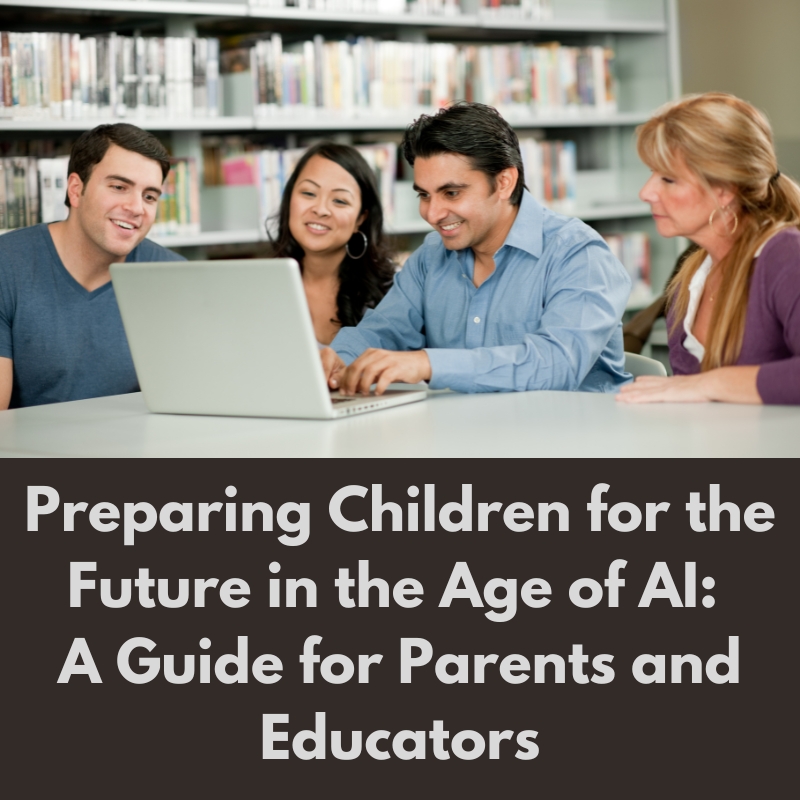How AI Will Shrink Law Firms and Why You Need to Adapt Now

Legal is one of the world’s oldest and most respected professions. Lawyers have provided legal services and advice to individuals, businesses, and governments for centuries. They have been instrumental in shaping the laws, policies, and institutions that govern our society.
But what if I told you that the legal profession faces a major disruption that could change everything?
According to a recent study by scholars from Princeton University, the University of Pennsylvania, and New York University, “legal services” is the industry that faces the most impact from the new AI.
Another report by economists from Goldman Sachs suggested that automation could replace 44 percent of legal work. The only occupation with a higher percentage was office and administrative support jobs, at 46 percent.
Legal professionals are not the only ones who will see their tasks affected by AI advancement. A study by researchers from OpenAI, the developer of ChatGPT, and the University of Pennsylvania showed that about 80 percent of American workers would have at least 10 percent of their tasks influenced by the latest AI software.

AI is not just a buzzword or hype. It’s a reality already transforming many industries and sectors, such as healthcare, education, finance, manufacturing, and more. AI is a broad term that refers to computer systems that can perform tasks that normally require human intelligence, such as understanding natural language, recognizing images, learning from data, making decisions, and solving problems.
AI is capable of doing what humans can do and doing it faster, cheaper, and better. AI can process large amounts of data and extract relevant insights. AI can improve accuracy and reduce errors. AI can enhance efficiency and productivity.
AI will transform the legal profession and make many law firms obsolete unless they adapt to the new reality.
I am Gordon Grigg, business consultant from Nashville, Tennessee. In this post, I’ll show you how AI will impact the legal industry, why many law firms will be shrinking, and how you can rebrand yourself and adjust your business model to thrive in the AI era.
Benefits of AI for the Legal Industry

One of the main benefits of AI for the legal industry is that it can automate many of the routine daily tasks that lawyers do. These tasks include document review, contract drafting, due diligence, discovery, compliance checks, and more. These tasks are often time-consuming, repetitive, and prone to human errors. By using AI tools that can scan documents, extract key information, flag issues, generate drafts, and check for errors, lawyers can save time, and money and improve their quality of work.
For example, one of the leading vendors of AI-powered document automation is Knackly which helps lawyers create customized documents in minutes. Knackly allows lawyers to upload their templates or use pre-built ones and then fill in the details using an intuitive questionnaire. Knackly then generates the document with the correct formatting and language. Knackly also integrates with other tools, such as Microsoft Word and Adobe Acrobat, to streamline the workflow.
Another benefit of AI for the legal industry is that it can enhance research and analysis by using natural language processing (NLP) and machine learning (ML) to process large amounts of data and extract relevant insights. This can help lawyers find precedents, cases, statutes, regulations, and other sources of law faster and more accurately.
For example, one of the leading vendors of AI-powered legal research and analysis is LegalRobot which helps lawyers understand contracts and other legal documents. LegalRobot uses NLP and ML to analyze contracts and provide plain-language explanations of their terms and clauses. LegalRobot also provides suggestions on how to improve contracts or avoid potential pitfalls. LegalRobot also helps lawyers compare contracts with similar ones in their database or with industry standards.

Another benefit of AI for the legal industry is improving access to justice by providing online legal services, chatbots, smart contracts, dispute resolution platforms, and other tools to help people with legal issues without hiring a lawyer. This can lower legal services’ cost and increase legal aid’s reach.
For example, one of the leading vendors of AI-powered online legal services is CoCounsel, powered by GPT-4. CoCounsel is a chatbot that can answer common legal questions, provide guidance on legal procedures, draft simple documents such as wills or leases, and connect users with human lawyers if needed. CoCounsel also uses NLP and ML to learn from user feedback and improve its responses over time.
DoNotPay is an AI-powered chatbot that simplifies handling various legal issues, including consumer rights, parking tickets, and small claims disputes. DoNotPay can help users generate letters, forms, or scripts to communicate with authorities or companies and provide tips and advice on winning their cases.
LegalZoom is an online platform that provides a range of legal services, such as business formation, estate planning, intellectual property protection, and more. LegalZoom uses AI to automate some of its processes, such as generating customized legal documents, checking for errors or inconsistencies, and providing recommendations based on user inputs.
LawGeex is an AI-powered platform that helps users review and negotiate contracts faster and more efficiently. LawGeex can analyze contracts and compare them with a set of predefined criteria or best practices and then provide suggestions on how to improve or accept them. LawGeex can also help users create their own contracts using templates or smart clauses.
Many Law Firms are Unwilling to Embrace AI and its Benefits.

However, not all law firms are ready or willing to embrace AI and its benefits. Some may be reluctant to change their traditional working methods or fear losing their competitive edge or human touch. Some may also face ethical or legal challenges in using AI in their practice or complying with regulations. Therefore, law firms must adapt to the new reality and leverage AI to their advantage. Continue reading and see why many law firms will be shrinking and how you can rebrand yourself and adjust your business model to thrive in the AI era.
Many law firms are still working on an old model based on many people and paralegals, making them less competitive and profitable. One of the main reasons for this is that many law firms are still relying on billable hours as their main source of revenue.
This means they must hire more people and paralegals to handle more work and generate more income. However, this also means they have higher overhead costs and lower efficiency. For example, according to a report by Thomson Reuters, the average law firm spends 46% of its revenue on salaries and benefits for lawyers and staff.
Moreover, the report found that the average lawyer spends only 124 hours a month on billable work.
In contrast, the rest of the time is spent on administrative tasks, business development, or personal matters. This shows that many law firms need to optimize their resources or maximize their value.
Another reason many law firms are still working on an old model is that they resist change and innovation. They are reluctant to adopt new technologies or methods that could improve their productivity or quality of service.
According to a survey by Wolters Kluwer, firms can be better prepared for key client focus areas.
For example:
• Only 35% of lawyers say their firm is very prepared in Using Technology to Improve Client Services;
• Only 32% are very prepared in Offering Greater Specialization, and
• Only 31% of lawyers are prepared in Keeping Pace with Changing Client Needs
The number of lawyers reporting their firm is very prepared to use technology to improve client services increased to 35% in 2022, up 7 points from 28% in 2021.
The final reason why many law firms are still working on an old model is that they are unaware of the opportunities or threats that AI poses to their business. They are not keeping up with the latest developments or trends in AI and how they could affect their industry. For example, AI could create new markets and services for law firms, such as predictive analytics, risk management, or compliance automation. However, AI could also disrupt the existing market and create new competitors, such as online platforms, alternative legal service providers, or even clients themselves.
Many law firms are also not preparing for the future or investing in their skills or capabilities. For example, according to a Georgia state university law review, law firms need to develop new skills and competencies to succeed in the AI era, such as data literacy, digital literacy, emotional intelligence, or creativity. However, many law firms are not providing adequate training or education for their lawyers or staff to acquire these skills. Therefore, law firms need to adapt to the new reality and leverage AI to their advantage.
How to leverage AI to become a powerhouse in the legal industry

If you are a small lawyer who has not had the numbers in the past to really compete with large firms, you may think that AI is a threat to your business. You may think that AI will replace you or make you irrelevant. You may think that AI will only benefit the big players who have more resources and data. However, you are wrong. AI is not a threat but an opportunity. AI is not a replacement, but a partner. AI is not a benefit for the few but for the many. If you want to survive and thrive in the AI era, you must understand how AI works, how you can rebrand yourself, and how to adjust your business model accordingly.
The first step is understanding how AI works and what it can do for you. AI is not a magic wand that can solve all your problems or do all your work. AI is a tool that can help you automate some of your tasks, enhance some of your skills, and improve some of your outcomes. For example, AI can help you automate document review, contract drafting, or legal research. This can save you time, money, and human errors. AI can also help you enhance your research and analysis, decision-making, strategy, and outcomes. This can help you find more relevant information, insights, risks, opportunities, and solutions. AI can also help you improve your access to justice and reach more clients and markets. This can help you lower the cost of legal services and increase the reach of legal aid.
The second step is to rebrand yourself and showcase your value proposition. You need to differentiate yourself from your competitors and show your clients why they should choose you over others. You must emphasize your human skills and qualities that AI cannot replace or replicate. For example, you can highlight your creativity, empathy, communication, negotiation, or persuasion skills. You can also highlight your experience, expertise, reputation, or niche. You need to show your clients that you are not just a lawyer who uses AI tools but a trusted advisor who leverages AI to provide better solutions.
The third step is to adjust your business model and offer new services or products. You need to adapt to the changing market and customer needs and expectations. You need to innovate and create new value for your clients and yourself. For example, you can offer new services or products that use AI tools or platforms, such as online legal services, chatbots, smart contracts, dispute resolution platforms, and more. These services or products can help you reach more clients and markets, provide more convenience and accessibility, and generate more revenue streams.
The fourth and final step is to invest in your skills and capabilities. You must keep learning and improving your knowledge and skills in AI and related fields. You need to keep up with the latest developments and trends in AI and how they affect your industry. You need to keep testing and experimenting with new AI tools and platforms and see how they can help you improve your work. You must also collaborate and network with other lawyers, experts, or organizations who use or provide AI solutions. This can help you learn from their experiences, best practices, or challenges.
By following these four steps, you can leverage AI to become a powerhouse in the legal industry.
Conclusion

In conclusion, AI is going to change the legal profession and make many law firms shrink unless they adapt to the new reality. AI can offer many benefits for the legal industry, such as automating routine tasks, enhancing research and analysis, and improving access to justice.
However, many law firms are still working on an old model based on many people and paralegals, making them less competitive and profitable. Many law firms are also resistant to change and innovation and unaware of AI’s opportunities or threats to their business.
Therefore, law firms need to adapt to the new reality and leverage AI to their advantage.
However, you don’t have to do this alone. If you need help understanding how AI works and how you can rebrand yourself and adjust your business model accordingly, contact me today, and I’ll show you how you can leverage AI to grow your law practice.
I’m Gordon Grigg, business consultant and an AI expert who can help you understand, rebrand, adjust, and invest in AI. I have over 20 years of experience and I have been using AI tools and platforms to enhance my practice and provide better solutions for my clients. I can help you do the same. Whether you need online legal services, chatbots, smart contracts, dispute resolution platforms, or anything else related to AI and law, I can help you create them or use them effectively. Don’t let AI intimidate you or make you irrelevant. Let AI empower you and make you successful. Contact me today and let’s get started!
I hope this blog post has been helpful and informative for you. If you have any questions or comments, please feel free to leave them below or contact me directly at
Phone: 6156309114 or
Email: gordon@gordongrigg.com
I would love to hear from you.
Thank you for reading, and stay tuned for more posts on how AI can transform the legal industry.
How AI Will Shrink Law Firms and Why You Need to Adapt Now Read More »




















